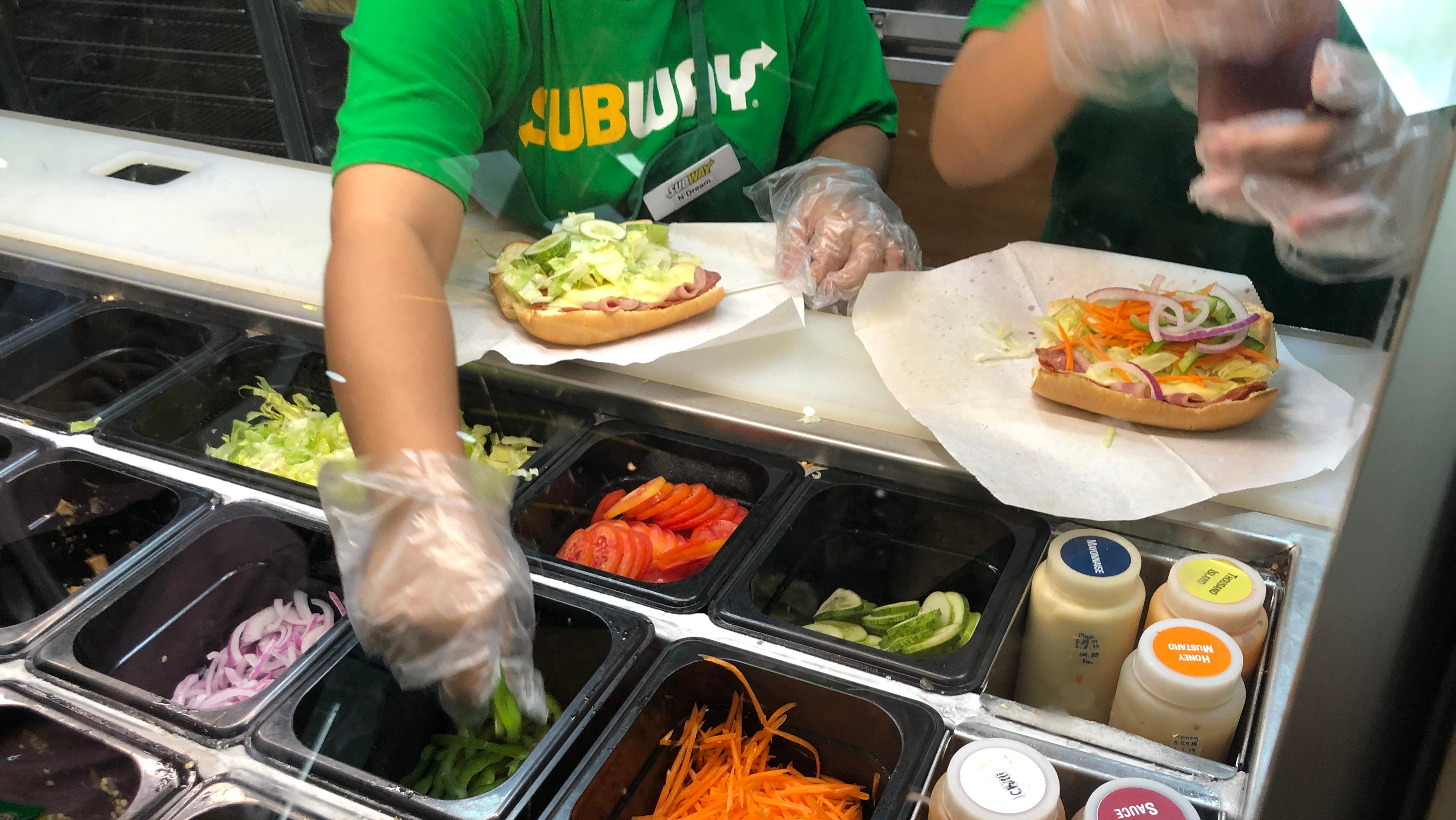Subway Won't Have Pre-Sliced Meat Anymore
This change to Subway's operations could potentially result in a better sandwich.
If you've ever ordered a $5 footlong at Subway (or maybe even a hot dog), you might have noticed something peculiar: Subway restaurants don't have deli slicers on site. Other popular quick-service shops like Jimmy John's and Jersey Mike's slice their meat in-house, but Subway receives its deli meat pre-sliced. The privately owned chain recently announced, however, that it will soon be adding deli slicers to every location, and CNN reports that this change might have bigger implications than a slightly better sandwich.
Why freshly sliced deli meat matters
When deli meat is sliced on site, it retains more moisture than the pre-sliced stuff, since less of the meat's surface area is exposed to air and consequently dried out. That's a difference you can taste, even when the meat is tucked into bread and all dressed up with condiments.
There's also the visual appeal of producing fresh slices of meat at a sandwich shop in full view of the customers who order it. It creates a sense that the restaurant is providing an extra special service, making the sandwiches to order rather than peeling cold cuts off an assembly line (after the meat's been sitting around for god knows how long). If customers feel as though some real TLC has gone into the product, they're more likely to return.
Why Subway is switching to freshly sliced meat
There's a hidden benefit to Subway adding deli slicers to every store, though. Pre-sliced meat is more expensive to order than whole hunks of deli meat—the convenience costs extra—which means Subway stands to save a lot of money by investing in slicers.
"We were one of the few, if only, sub shop that didn't slice in restaurant," Subway CEO John Chidsey told CNN. "Not only does it give the guest a better perception of seeing the nice, fluffy meat, but we save a lot of money since we were paying a lot of money to have it sliced upstream."
Even though Subway stands to save money going forward, don't expect to see a sudden price drop on your Sweet Onion Chicken Teriyaki; Subway plans to reinvest the extra money in further innovation. The chain has been in the process of a long overhaul known as its Eat Fresh Refresh campaign; as part of that refresh, there have been changes to where and what you order, including a new sandwich menu called the Subway Series. All in all, the investment seems to be working for the brand, which has seen sales increases over the past six months.
The downside to freshly sliced deli meat
It's worth noting that from an employee standpoint, the freshly sliced deli meat is going to require more work per sandwich. If you've ever asked a deli worker at the grocery store for a half pound of roast beef, you've seen them lug a giant hunk of it over to the slicer and begin work on your order. This obviously takes a little bit of time, so your sandwiches might require a longer wait.
Then there's the sanitation part: While it's crucial to keep any food prep area as clean as possible, it's arguably even more important when using a deli slicer. Deli meat is prone to listeria contamination, and since there's constantly meat touching the surface of the slicer, one tainted item carries the potential to spread listeria to countless other orders.
I've used deli slicers for kitchen prep work before, and cleaning those things is very difficult. There are many moving parts to a slicer that all come into contact with the meat, and cleaning the blade thoroughly isn't always easy, because some small gaps between the blade and the body of the device are almost impossible to reach with a towel. I don't want to say food poisoning is inevitable, because it's entirely preventable, but with this switch, Subway is certainly introducing a new kind of food safety risk.
Speaking of risk, employees will have to be trained on this new and dangerous piece of equipment. This document from OSHA, which is not for the faint of heart, explains that deli slicers are hazardous not only when being used, but also when being cleaned. Protective gear such as tough gloves are necessary to go anywhere near it, and Subway will have to provide those precautions to employees at all times. Switching from pre-sliced meat might save Subway money, but at the same time, the company is signing on to increased liability.
How this change in Subway's meat will affect the customer experience remains to be seen, but you can expect the changeover to occur gradually this year. And congrats to Subway for finding a way to earn slightly more cash off each Italian B.M.T. you order for a quick work lunch.
